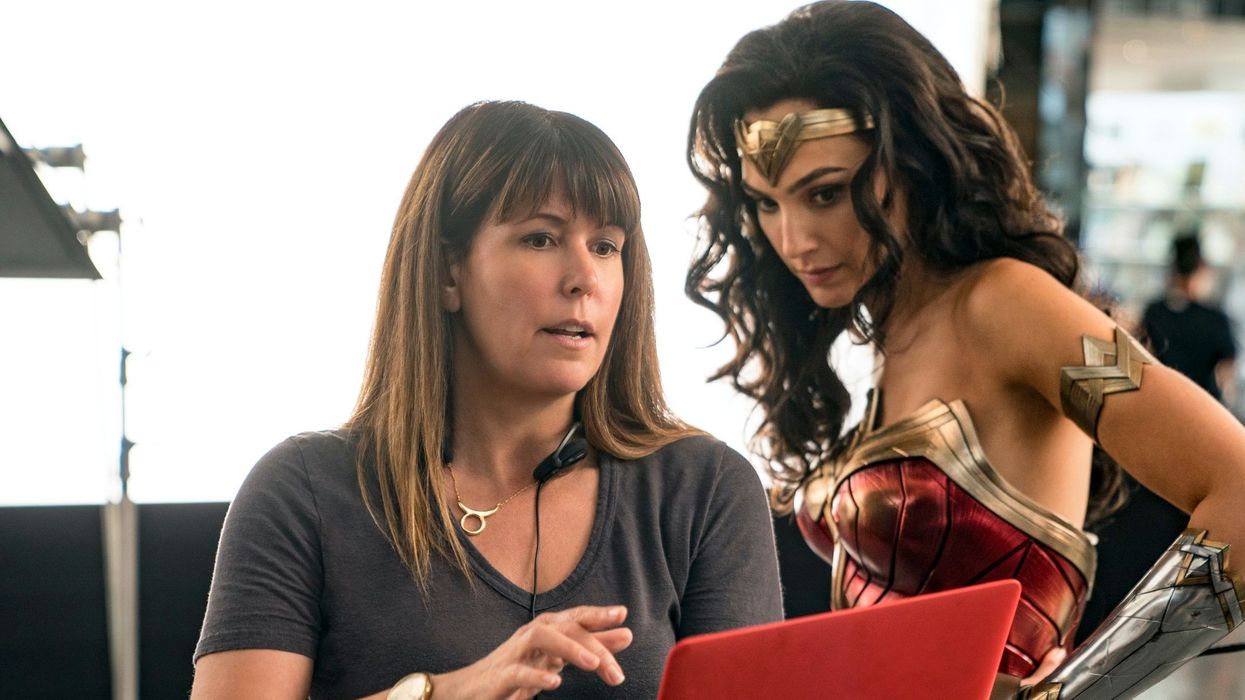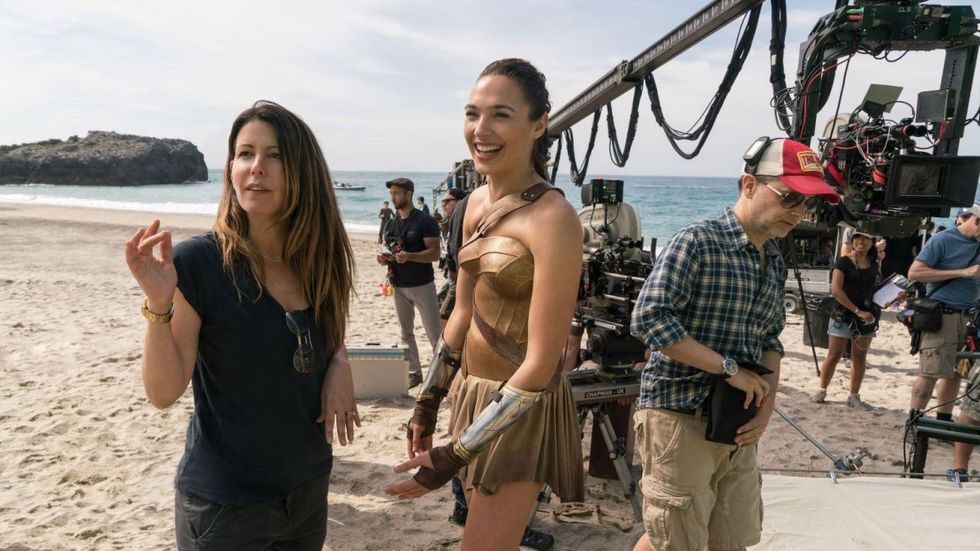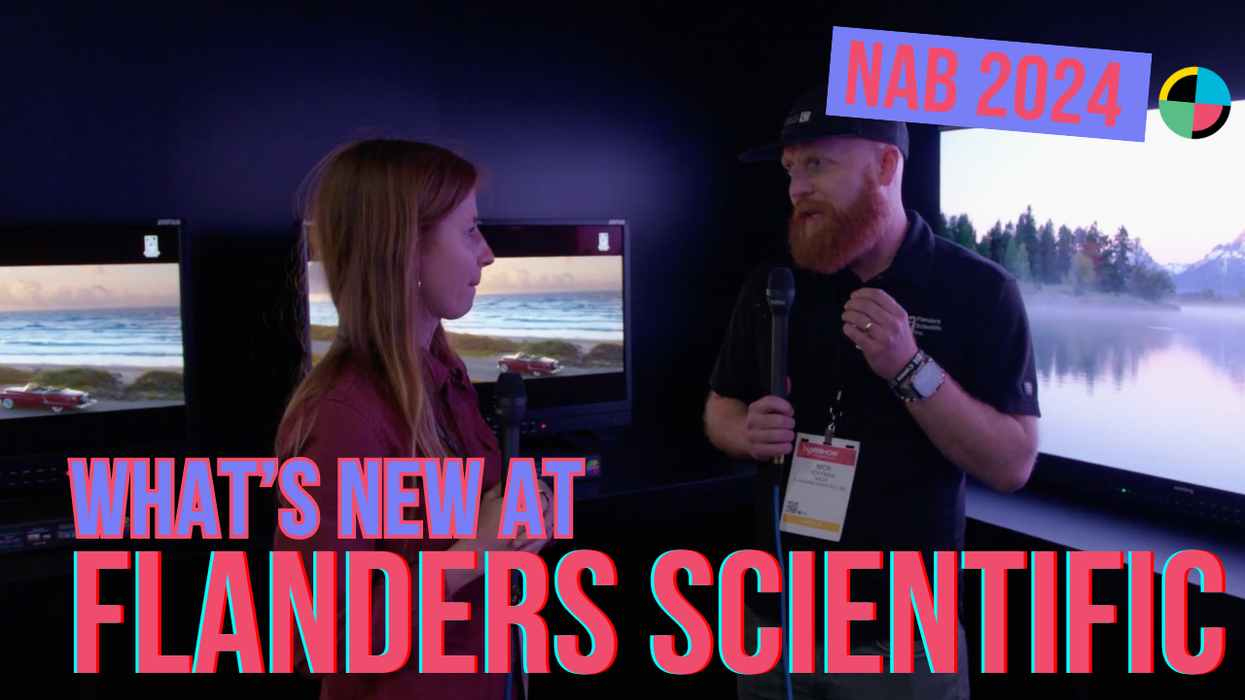Why Patty Jenkins Felt ‘Super Lonely’ Making ‘WW84’
At Sundance 2021, Jenkins explained how to go from loser to big-budget filmmaker. Just be prepared to be lonely.

Patty Jenkins is her own kind of Amazon woman. She first broke into the scene with Monster, and then broke barriers (and made history) as the first woman to direct a studio superhero movie with Wonder Woman. Now, with WW84 released and Star Wars Rogue Squadron on the horizon, she has a great view from the top.
It’s lonely. But, according to Jenkins, it’s worth it.
And she is begging you as filmmakers to join her, evolve the superhero genre, and in the process, save the world.
No Film School tuned in to this illuminating conversation from Jenkins at the 2021 Sundance Film Festival and compiled some of the most noteworthy takeaways. Check out the full conversation Patty Jenkins: From Monster to Wonder Woman, presented by Sundance Co//ab here. (You’ll have to click through and login to Co//ab to watch.) And read our takeaways below.

How being an oddball and outsider made Patty Jenkins an artist
Jenkins started her chat by explaining that she grew up as a person who was an odd mix of things, owing to her overseas childhood with her military family. (Her dad was a fighter pilot.)
“In my youth, I lived all over the world and I experienced a lot of highs and lows,” said Jenkins. “It built a reservoir of emotion I didn’t know how to express… It never occurred to me I could be a filmmaker because I lived in the Midwest and was poor enough that it didn’t occur to me. As I was trying to express myself and these complex feelings I was having, I got into music and silk screening and drama. I realized I was going to be an artist. [At Cooper Union] I took an experimental film course. The moment I put music to story, that was it. From then on I had a truly authentic relationship to art.”
Working your way up the camera department is the best education—as long as you keep sight of what you really want
Jenkins explained that she started working in commercials and music videos in New York, at first as a PA and then in the camera department.
“I rose up the ranks to be a focus puller,” said Jenkins.
“For 8 years, I worked as crew on commercials and music videos. Looking back, it was an incredible education that I’m grateful for. I thought I was a loser at the time, now I’m so endlessly grateful. But I realized, I was too busy to ever get out and make the films as I had wanted to. I applied to AFI so I could take out student loans and call myself a director see if I could make it.”

Why it’s a lonely view, but that’s part of the job
Jenkins was asked what the biggest challenge was about being a director.
“It’s very lonely,” she answered without flinching. “It’s super, super lonely. No one can go on the ride with you.”
Jenkins went on to explain that it’s an inherent part of being a leader on set.
“Leadership is interesting. There’s an alienating perception that you get what you want. You’re also taking responsibility for everything. There are long periods of time feeling lonely. ‘I guess that’s what Patty wants.’ That’s me, I’m Patty, we’re going to do what I want.”
And while the pressure to succeed is high, Jenkins offered a counter.
“It’s great if I can make money, but it’s about bringing beauty into the world. Whether it succeeds or fails is secondary.”
Why WW84 is a call to evolve our superhero movies for what we need today
Jenkins explained that with the first Wonder Woman movie, she was explaining the character and the world of the story. With that established, WW84 was about so much more.
“I wanted to talk about what is the evil of our time,” said Jenkins.
“The superhero genre was all established post-WWII. So nothing has changed, it’s still undeniable evil. But we have learned so much since that time; we are in a much more sophisticated world. You’re talking Joseph Campbell myth stories. That needs to evolve to be about what we’re actually facing, which is a world where we realize we’re the bad guys.
Or that nobody is the bad guy, or that lots of people are the bad guys. It’s nuanced, and changes need to happen, and it’s scary. We are evolving a superhero into actually standing for a more complex bravery. Wonder Woman can demonstrate her own weakness and her own rising above it to be a hero. That’s an important message right now.”

The best way to advance to more ambitious projects (and counter sexism) is to run a well-oiled set
Jenkins explained that directing is business and creativity, which ultimately has to do with communication and leadership.
“You can reach incredible heights and buy yourself creativity as long as you tend the other side of the ship very well,” she said emphatically.
“There’s nothing that is women’s fault that has held them back. Some have always been ready to do great directing and they haven’t been given the opportunity. Within that, men were training each other these leadership steps, and people weren’t training younger women to do this.”
Jenkins explained that her background as the daughter of a fighter pilot may have helped her in the training needed to then work in the camera department. Dutifully fulfilling those roles gave her exactly the experience she needed to know how to run a set.
“I’ve learned that you must organize your set so it doesn’t matter if anyone believes in you or not,” she said. “Sexist or not, the system is working, and everybody is doing their job. They can think what they want about women, but if the set is working, it’s irrelevant.”
Jenkins wants you to use filmmaking to save our civilization in a very real way
Jenkins ended her talk with a call to filmmakers to use their craft to create something important for these challenging times the way storytelling has helped humanity move forward for thousands of years.
“I don’t want you to become boring, preachy filmmakers with lessons,” she said.
“I challenge everybody to realize it’s more than the glory of the film or filmmakers. We are in a serious place. Wow, can we do both? Use the craft to make deeply commercial, enjoyable films, but make something beautiful to bring into the world. Study story and mankind. Looks at the stories that have influenced cultures, and try to make something that will challenge all of us to save this world.
Check out the entire Sundance 2021 conversation with Jenkins here.
Can’t take part in this year’s festivities? Check out the rest of our 2021 Sundance Film Festival coverage here.

 No Film School's coverage of
No Film School's coverage of 









